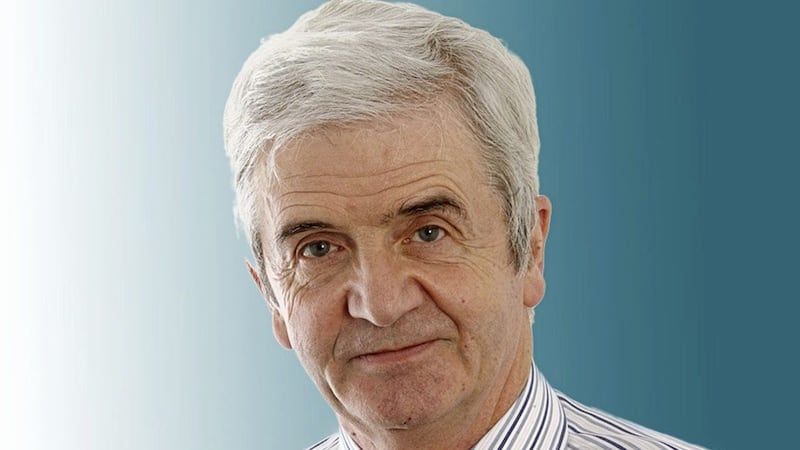If you support the "We deserve better" campaign, you might like to go and picket the Dáil.
You see, nothing much will happen in the north until something big happens in the south. Stormont's return is unlikely in the short term, because Sinn Féin (SF) will not return to government in Belfast until it has either seized or lost its opportunity to enter government in Dublin.
Thus the "something big" in Dublin has to be a general election. If you really believe that the return of Stormont will make things better for us in health, education and infrastructure (which suggests a triumph of hope over experience) then you should demand a southern election.
Although the present Dáil can run for another three years, an election is likely much sooner than that. Its timing will be determined by the economy, the political poker game between Fianna Fáil (FF) and Fine Gael (FG) and the nature and content of the pre-Christmas Brexit deal. So don't bother picketing Stormont - its future lies across the border.
So what is likely to happen in Dublin and how will it all pan out? In theory, Fine Gael will win an election within the next year, Sinn Féin will become its junior coalition partner and the party will then return to Stormont. But the reality is much more complex.
For a start, Irish economic growth has been both geographically and socially uneven. The post-depression boom has largely centred on Dublin and surrounding counties but much of the rest of the country remains badly hit.
This week, for example, the government closed another 159 rural post offices in every county except Dublin. That's the same socially-stratified Dublin where a mother and six of her seven children were recently forced to sleep fully clothed in a Garda station.
This selective nature of Ireland's economic recovery is reflected in a recent poll, which found that the growing optimism about future prosperity has begun to decline. It coincided with the first drop in popular support for Leo Varadkar, which suggests that his honeymoon period is over.
So he has to decide whether to go to the country now, while support is still relatively high, or wait another year, by which time uncertainty about Ireland's future may have increased.
To avoid such a choice, the Taoiseach has tried to push Fianna Fáil into ending their confidence and supply deal which keeps him in office. That way he could blame FF for forcing an election, which no one wants. But FF leader, Micheal Martin, intends to keep Varadkar in power in the hope that the public mood may be soured by another year of Fine Gael government.
And that's where the SDLP comes in. FF can match FG on the economy, but it risks being outflanked by SF in the post-Brexit wave of nationalism (which will happen whatever the details of Brexit).
Leo Varadkar is already playing the role of bold Robert Emmett, the darling of Ireland, so he has nationalist-proofed himself and Sinn Féin claim to be the only true inheritors of everything Irish from Brian Boru onwards. (Someone once said a nation is a society united by delusion about its ancestry and a common hatred of its neighbours. That sounds like Irish political nationalism all right.)
That leaves Fanna Fáil without a flag, so they are going to plant their tricolour in the north, by entering some form of partnership with the SDLP. That is a re-run of de Valera's membership of Stormont as South Down MP in the 1920s and 1930s. It will give the party an all-Ireland image to counter Sinn Féin's.
The move will also give the SDLP some unexpected nationalist heritage by claiming, for example, a political link back to Constance Markievicz, who founded Fianna Fáil.
So the election will be fought on the economy, the parties' nationalist credentials and who can claim to have most greatly influenced the Brexit deal. For the first time since he came to office, Leo Varadkar could be beaten, which would be bad news for SF and could see Stormont redundant for some time.
Oh dear, you say, we deserve better. Maybe, but there is an argument which says that if we voted for sectarian institutions in the Good Friday Agreement and we vote for sectarian parties, then sectarianism is what we are going to get and it cannot deliver the normal politics necessary for good government.
So maybe we do not deserve better. Maybe we deserve all we get. Hardly a very charitable conclusion, but one which, in political terms, would appear both rational and inevitable - and one which explains why Stormont's future lies in Dublin.









